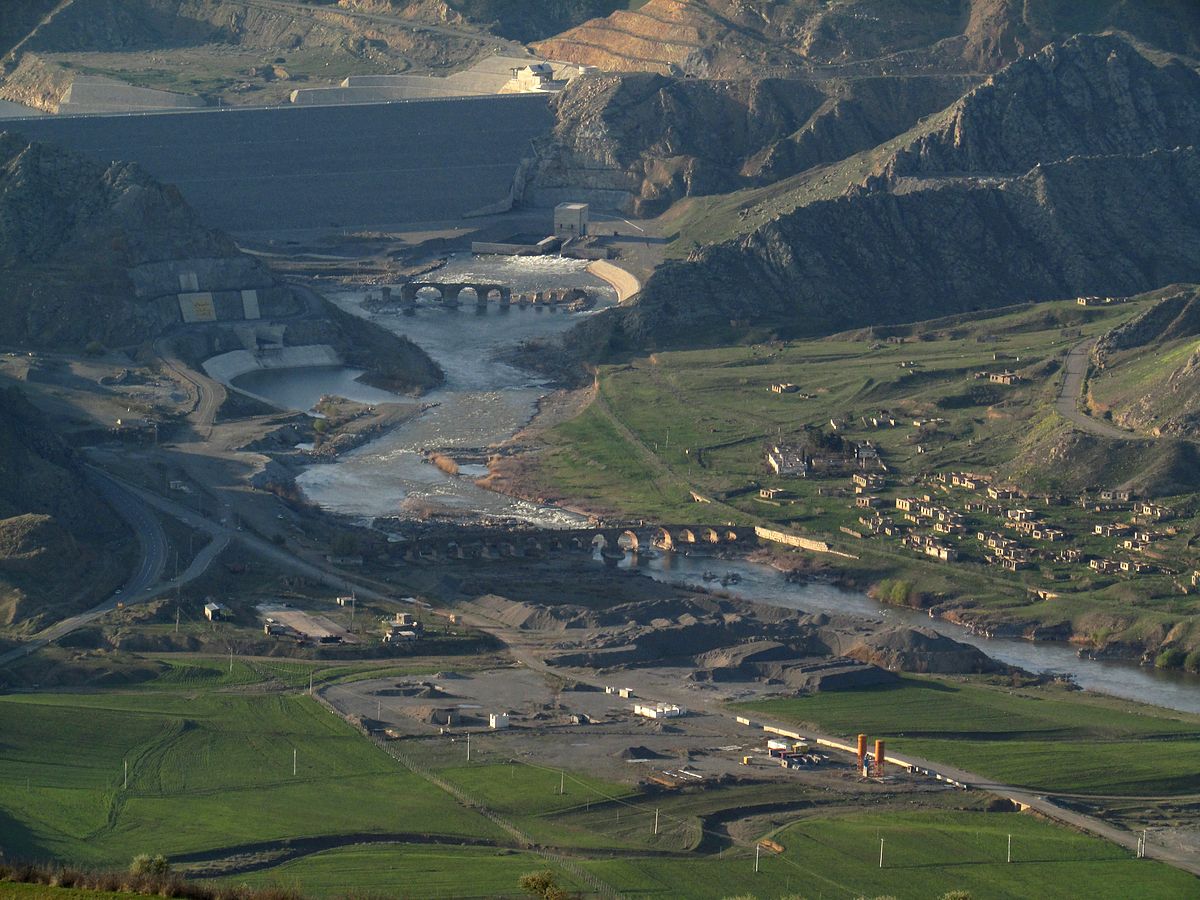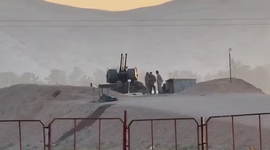Iranian President Hassan Rouhani has reassured Baku that it supports Azerbaijan's territorial integrity and called for maintaining security in the border areas of the Islamic Republic amid heavy clashes between Armenian and Azerbaijani forces over the Nagorno-Karabakh region.
"One of my emphases in talks with senior officials of Armenia and Azerbaijan was that we emphasize the preservation of the territorial integrity of Azerbaijan, but we are very sorry for the war itself and must end because no problem can be solved through fire and blood, and we must look for other ways, and we are ready for that" Rouhani said in a cabinet on October 7, according to the official website of the Iranian president.
Over the last few days of clashes, a number of rockets and missiles hit Iran's villages close to the joint borderline, injuring a number of people including a five-year-old child. The shells also damaged two buildings. Due to a mortar that hit the power network of the borderline town of Khodaafarin County in northwest of Iran, the area suffered a blackout for a while, according to Iran’s IRNA news agency.
Meanwhile, Deputy Commander of Iran’s Law Enforcement Police Brigadier General Qassem Rezayee said that during the two countries’ exchange of fire, the bordering areas of Iran have come under misfire.
“Our border guards have warned Armenia and Azerbaijan in a legal manner, against the repetition of such an incident, and they apologized for the unintentional fire [at Iran's territories],” he added on October 6.
On October 5, Iranian Foreign Ministry Spokesman Saeed Khatibzadeh also warned the two states against violating Iranian borders, saying “both warring sides should take heed that the Islamic Republic cannot tolerate clashes on its borders and aggression on its soil."
Earlier, Deputy Governor-General of Iran’s East Azerbaijan Province, Aliyar Rastgoo, also gave warnings to the two conflicting states about the consequences of mortar shells hitting border areas, and said that Iran is closely minoring the situation on the borders.
About 30 million ethnic Azerbaijanis and about 100,000 Armenians live in Iran. In recent days, widespread protests broke out in some of Iran’s major Azerbaijani-speaking cities including Tabriz, Urmiya, Ardabil and Zanjan. The protesters called for the “liberation of Karabakh” and demanded the closure of Iran’s border with Armenia amid reports of Russian military equipment being transferred via country’s territory to Armenia.
Clashes between Armenian and Azerbaijani forces erupted on September 27 after Armenia's forces deployed in the occupied Azerbaijani lands started shelling the military and civilian positions of Azerbaijan. Currently, military operations are being conducted along the Line of Contact in the occupied Azerbaijani lands, marking the most intense fighting between Armenian and Azerbaijani forces since a ceasefire was reached in 1994.
Armenia and Azerbaijan have been locked in a decades-old conflict over the Nagorno-Karabakh region, which is the internationally recognized territory of Azerbaijan but occupied by Armenia. Following the Soviet Union’s dissolution in 1991, Armenia launched a military campaign against Azerbaijan that lasted until a ceasefire deal was reached in 1994. Armenia occupied 20 percent of Azerbaijan’s internationally recognized territories including the Nagorno-Karabakh region and seven surrounding districts. One million ethnic Azerbaijanis were forcibly displaced from these areas and 30,000 were killed.
Although the United Nations Security Council adopted four resolutions demanding the immediate withdrawal of the occupying forces from Azerbaijani lands and the return of internally displaced Azerbaijanis to their ancestral lands, Armenia has failed to comply with all four legally binding documents.







 Russian peacekeeping forces, deployed in the Karabakh (Garabagh) region of Azerbaijan since 2020, have commenced their withdrawal from the area.
Russian peacekeeping forces, deployed in the Karabakh (Garabagh) region of Azerbaijan since 2020, have commenced their withdrawal from the area.
 Azerbaijan officially unveiled the logo for the upcoming 29th session of the Conference of the Parties to the United Nations Framework Convention o...
Azerbaijan officially unveiled the logo for the upcoming 29th session of the Conference of the Parties to the United Nations Framework Convention o...
 The Kazakh authorities have increased their arbitration claims against international oil companies involved in the development of the Kashagan oil ...
The Kazakh authorities have increased their arbitration claims against international oil companies involved in the development of the Kashagan oil ...
 Russian Foreign Minister Sergei Lavrov has reasserted that Moscow has no intentions to stop the fighting in Ukraine, even if peace talks commence.
Russian Foreign Minister Sergei Lavrov has reasserted that Moscow has no intentions to stop the fighting in Ukraine, even if peace talks commence.



